“Processing life” – An Interview with RENT
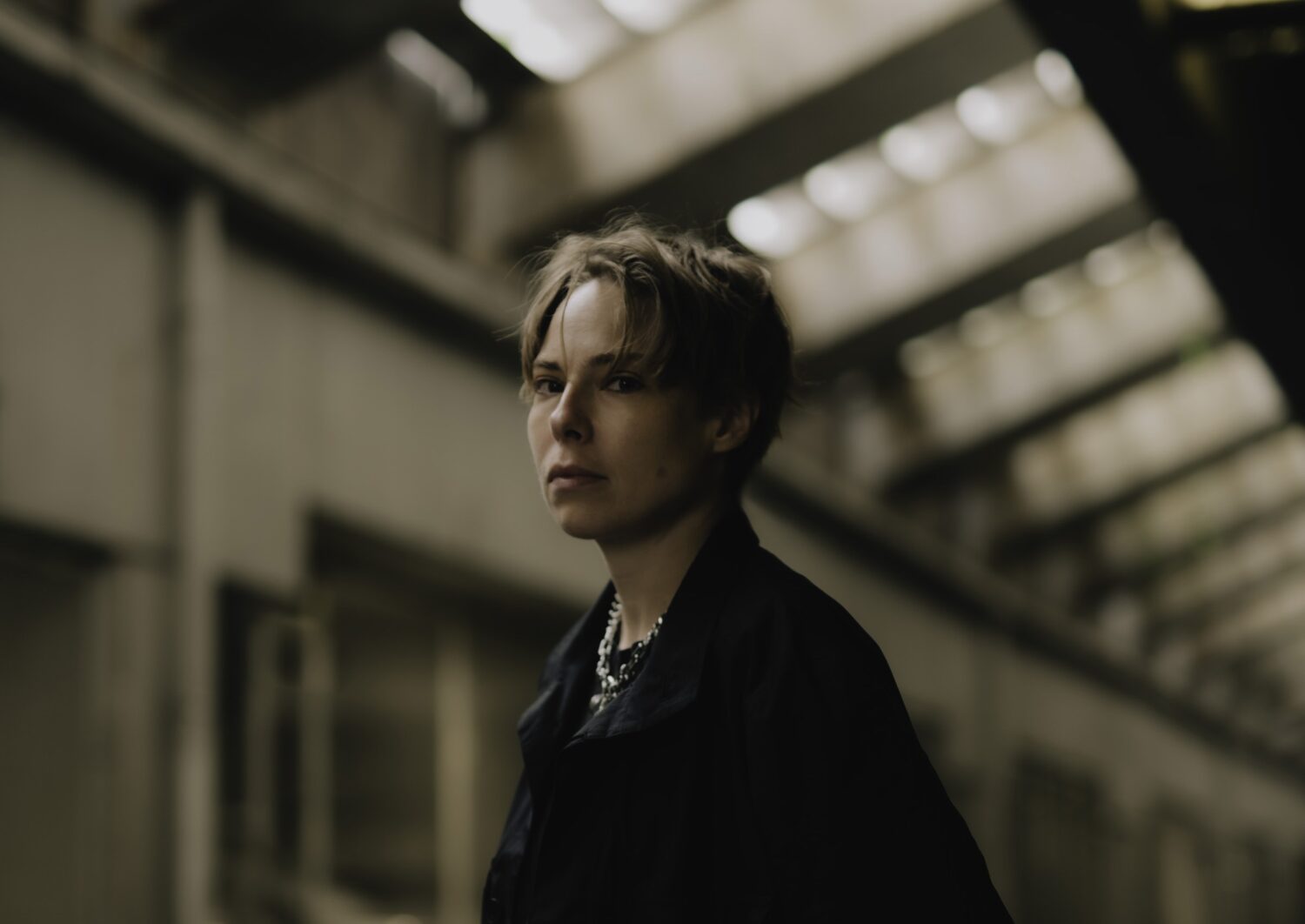
Release-Show “To Kill A Phantom” (Ventil Records)
Friday, 21. June 2024 – Flucc Wanne
More info here
Last year was the release of the EP “As Cold As Sunlight” (Transformer), now your first longplayer is soon to come. How has the journey been?
The most beautiful aspect for me from the very start was the support of the community. Right after the tape release, which was initiated by Mike and Turbo, Ursula (Winterauer) from Ventil approached and asked me to do a vinyl. I always wanted to release with her label, and to be able to have this happen now, as well as collaborating with Leon Leder who did the mixing, Rashad Becker doing the masters and Winona Hudec and S.-Mara Waldhör creating the graphic design, makes me super happy. Also Shilla (Strelka) supporting with the release concert and you doing this interview with me now means a lot. It all feels much safer in the end if other people you trust are included in it.
Your compositions live from immersive cinematographic soundscaping. Do you like to draw people in?
I like to think of myself as a filter of things that are happening, trying to translate them into sounds to make sense of them, to mirror them. And yes, I think I do like to draw people into that. I see my process of composing music as something very intimate, but later on playing it in public settings, it becomes a community thing, something that is physically experienced together. I like to think of sound as something that might open us up, in a way of sensitivity and empathy. But I also know that it’s not always easy to take. I had friends telling me they had to go outside during a concert as it felt too intense, because it’s not always the right moment for an experience like that. But exactly this aspect of opening up is what draws me in to working with sound, I think.
“I like to think of sound as something that might open us up, in a way of sensitivity and empathy.”
While listening to Kill A Phantom, perspectives seem to alternate between the impression of witnessing atmospheric scenarios from a safer distance to occasional full physical involvement. Are you following any approaches of documentation in your work? How much is observation and how much is personal expression?
It’s a lot of processing life in general, revising the world we live in, its politics. The record refers to a world that I experience as quite dark at the moment. Apart from that I had a lot of personal losses as well. So this album was a way for me to process my feelings, not by trying to order them, but to put them out in all their layers. And maybe for me it was about finding a language where there are no words anymore. For example Elegy for Streetlights is a homage to my mom, who died one-and-a-half years ago. The process of composing it was very painful but also kind of soothing.There’s always this strong connection to what you live through, and to what’s happening everywhere else. And sometimes you just stick with that it’s fucked up, you know. It’s not about solving it.
Thank you for sharing this. Especially on the B side I could feel these approximations between tension and the soothingness you mentioned. I had a sensation at the end of Amplitudes of Truth, that left me in this vulnerable state of lingering, which then created this powerful bridge to said last track, Elegy for Streetlights. Artistically, were you more interested in seeking calm or embracing restlessness?
I care about a combination of both, about staying in as well as persisting together in restlessness. That’s why All Chains Will Tire for example has this beat which is referring to maybe a club situation. This mostly comes from the dynamics, as it is not as crowded compared to some other tracks. You don’t have thousands of layers of sounds competing with one another. It’s quite apocalyptic. The place it takes you is not necessarily one where you would be alone, but it’s a struggling, troubled place.
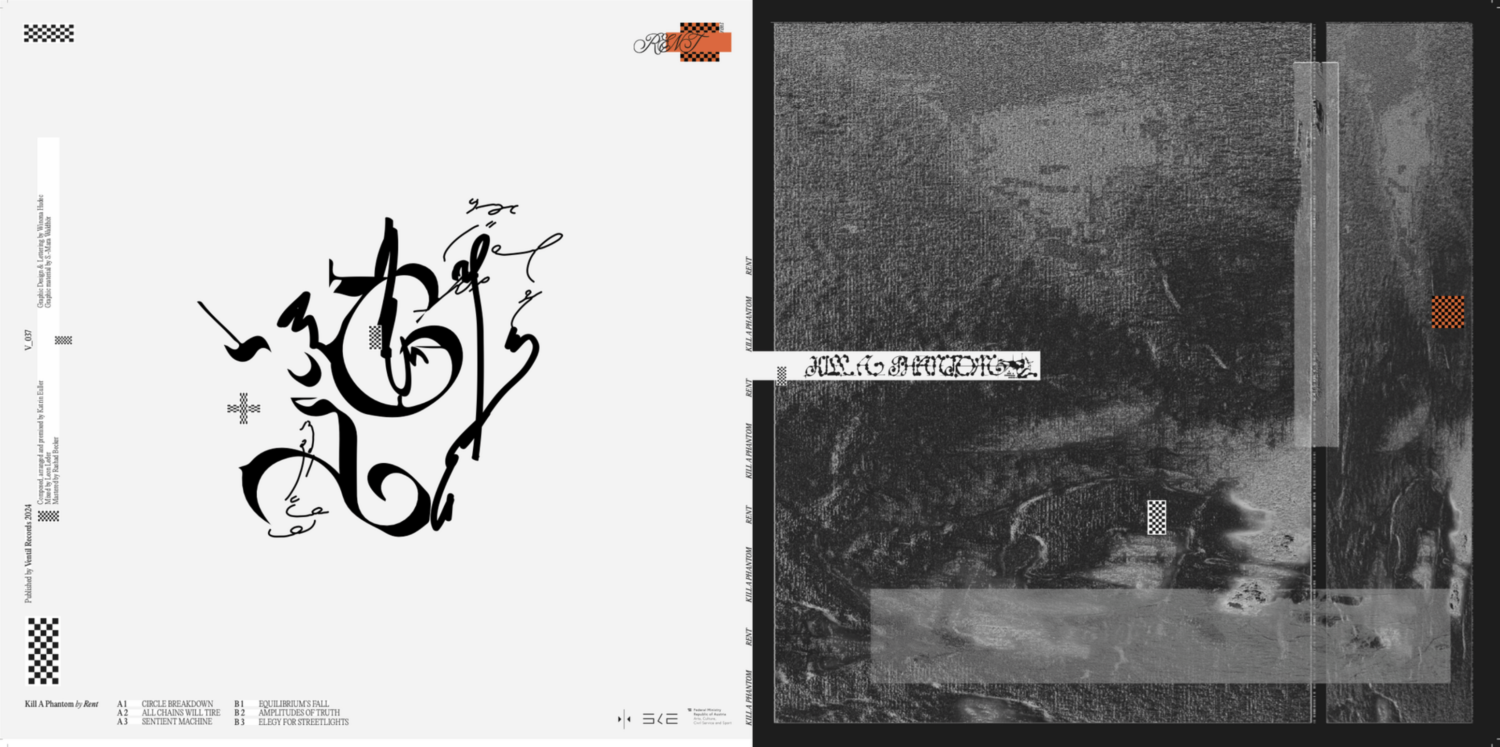
As a person you exude this unagitated comfort and ease, whereas your music doesn’t shy away from near-to orchestral pathos and the occasional epic buildup. Is this another side of Katrin?
I’m afraid, yeah. I’m probably quite a romantic soul. Sometimes I have to control it, being like, don’t go there, please, and sometimes I just let it be part of it. As in Elegy of Streetlights, which became a ballad. It’s somehow weird to call it a ballad, but it is one.
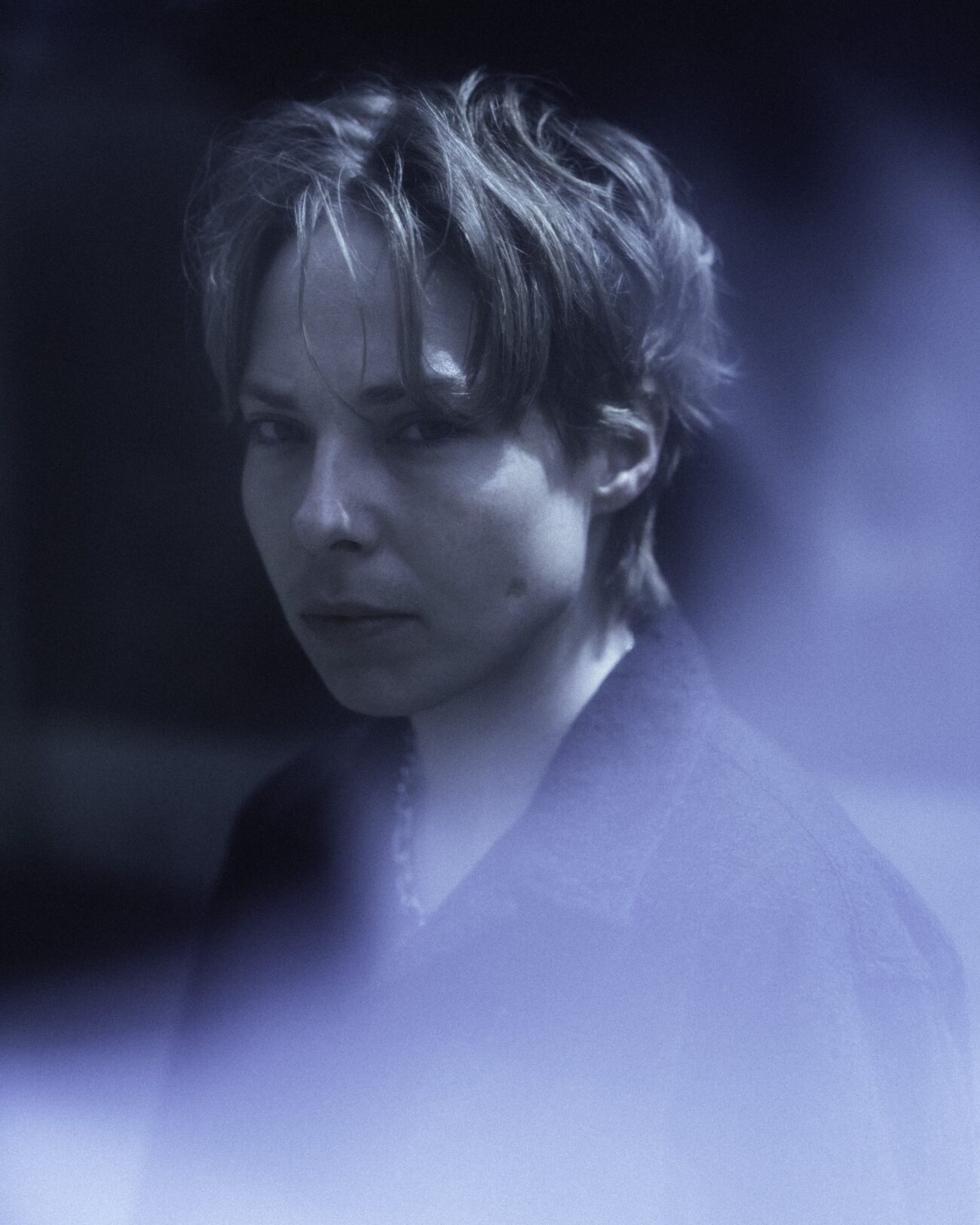
“With these interactions, possibilities for a narrative come up”
There seems to be a dramaturgical approach of storytelling within your work. Is that something that you actively consider?
It’s more a feeling for where the sounds could go, how they could develop.
As if they would live in this kind of world, I imagine all these questions, like: Where could they go next? What would they ask for? Is it more airy here or does it feel more dense?
Also, what would it do to me if this happens now? Will it surprise me or not? I also like to think a lot about how the sounds interact with each other, as with these interactions, possibilities for a narrative come up. But the narrative itself is very open to the listeners. Let’s say, I like to imagine them imagining something. Other possibilities to compose, to live or whatever. To open things up.
You have a very spatial way of composing. How do you experience physical needs in composing when you’re at home in the studio? Do you place/distribute sound elements referring to outside spaces or are you going by frequency-based desires inside your body?
That’s super interesting because I can never decide if it’s more the physical body itself or the environment in which the body is. I do think of frequencies and where they are located in the body to have a certain movement within, of a bass in the belly, of more higher sensations that reverberate in the front or back of the head, or creeping up the spine. But then I also like to take it out of there, tear it apart and make it move by itself. The Sentient Machine for example, I imagine it as finding yourself in the eye of a storm. On most of the layers in this track, I worked with nearly the same panning automation or movement, they all just circle around. And I imagined the body to just be there, right in the middle and surrounded by it all.
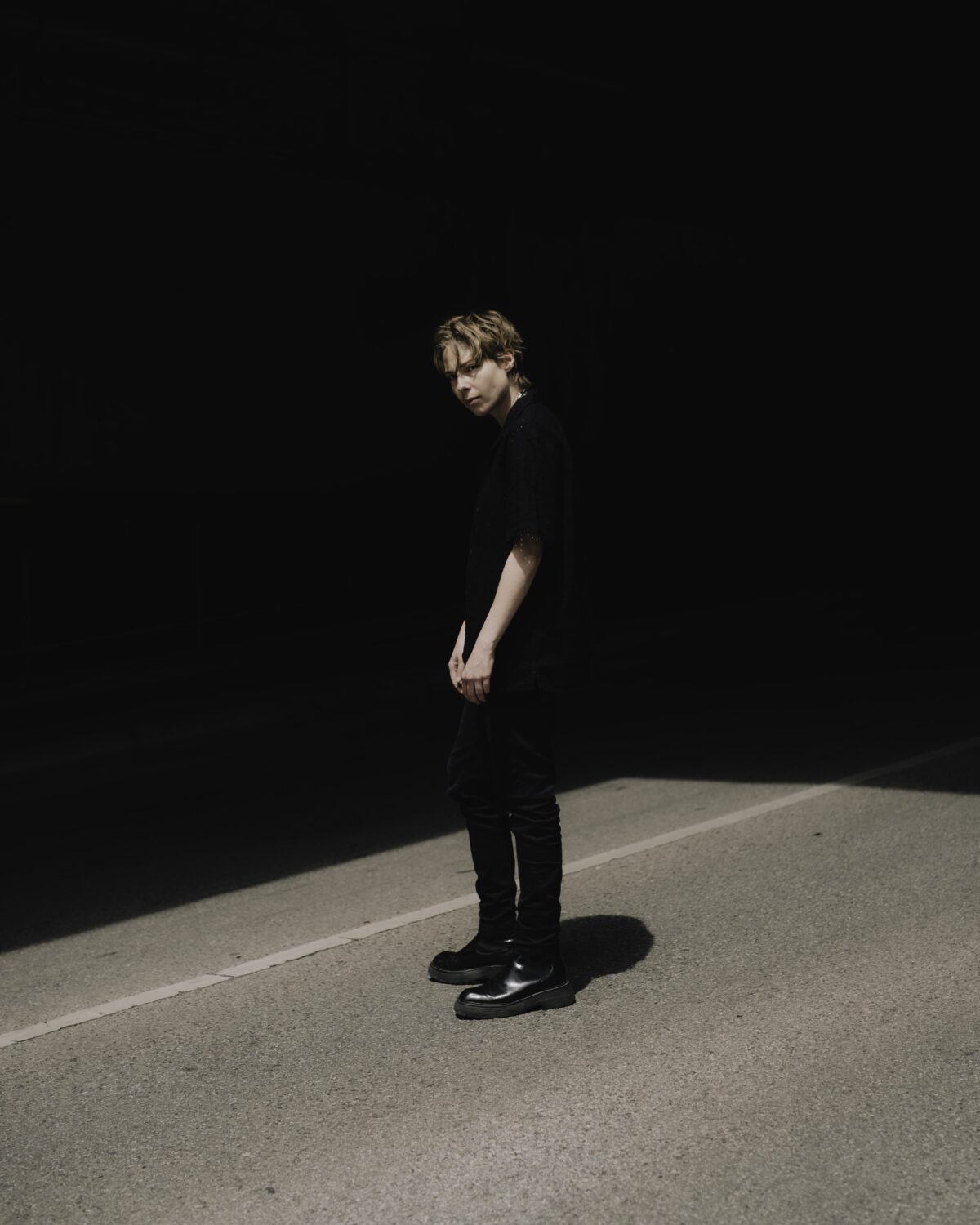
“I’d always stumble upon this certain notion of noise.”
Surroundings and environments also play an important role in your other scientific field next to sound art, where you work as an ecologist. How would you describe the relationship between these two worlds?
People told me that they feel an environmental connection in my music even before they knew I was an ecologist, where for me this relation was something that I rather picked up afterwards. It makes sense how all these environmental questions of wild relationships and layers and existences and dependencies become automatically part of the sound, because this is how I understand the world and my living in it. Back in my ecology studies, I’d always stumble upon this certain notion of noise. There are many reasons why I’m so much occupied with the idea of noise and what it does, various theoretical aspects that I find really interesting about it.
As a child I often was at my grandmother’s house, which was next to the autobahn. So I’d always have this noise in the background, which would calm me down immediately. I found this to be the most calming place ever. And later on in science it was noise that I found most interesting. For me it was about those kinds of things that they couldn’t explain, that would rather distract their outputs and results. If you have a lot of noise in your data, then it gets more difficult to make a clear prediction, as noise resembles variables we don’t have. And the more of them there are, the more grainy it gets.
And somehow this is exactly what ecology is about. It’s about all those relations and their complexities and dependencies. If you take away one thing, the system will not be the same anymore. The loss of one species might impact a whole ecosystem. Maybe there is a fungus somewhere that is entangled with that plant, there is a grazer, a predator, so many relations depending on each other. And I was always so much more interested in what you cannot measure, than in what you actually can.
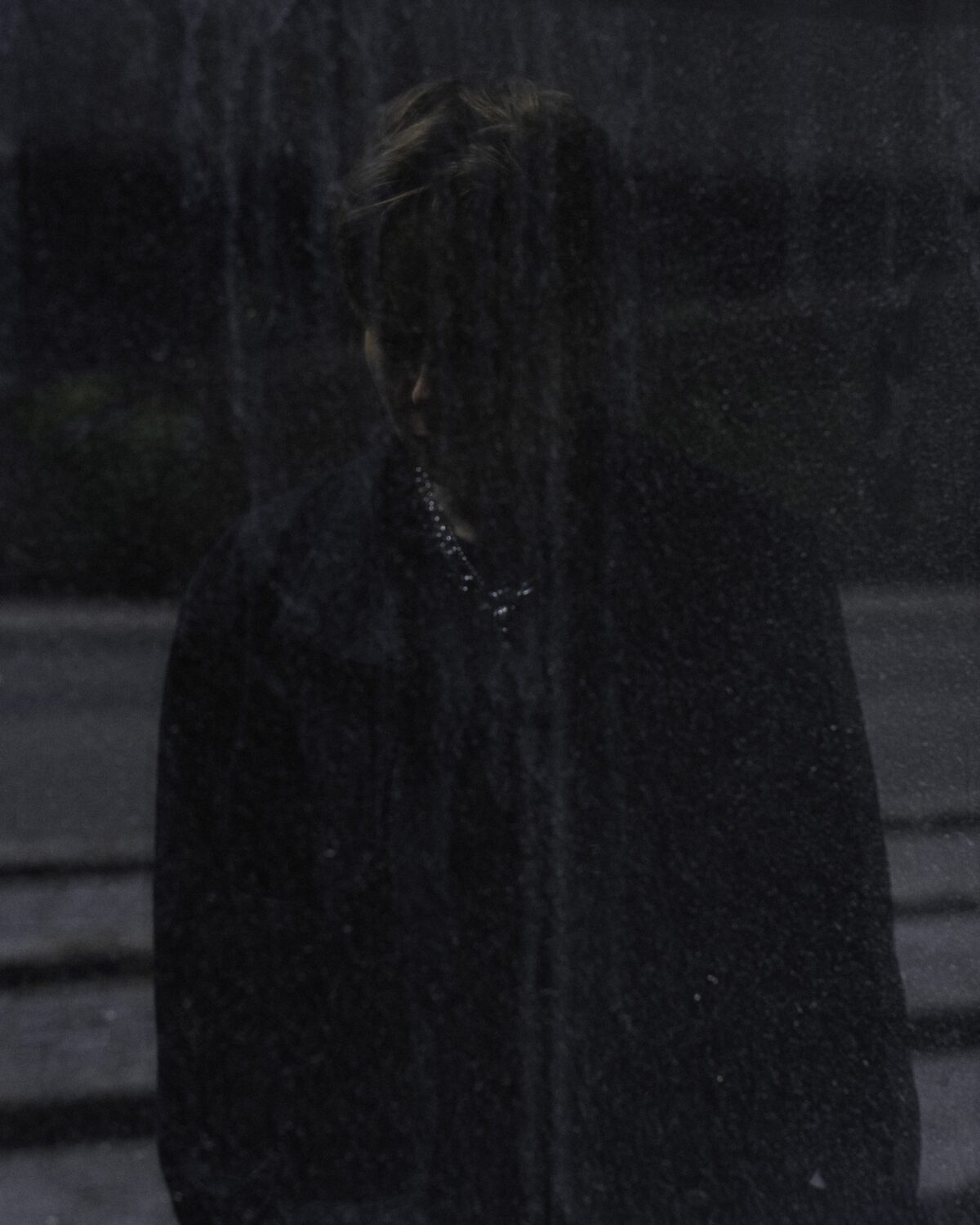
“Thinking about hierarchies in music composition and trying to avoid them.”
Also in your compositions all elements seem to be quite entangled, as if they live in equal coexistence with each other.
Yeah, I try to give them all an agency that is on a similar level of importance. I think it comes from ecologies, as well as from politics of sound. Thinking about hierarchies in music composition and trying to avoid them. But the positions of the sounds within a track are also always changing, so maybe I wouldn’t say they are all equal, but that there is no clear hierarchy and there is a lot of movement and negotiation.
For some people your music might insinuate a certain darkness. What do you think about dystopian futures as opposed to beliefs of resilience? Is there a silver lining?
Sometimes I’m a bit afraid that it really is a very dark journey. Sure, I like creating dystopian images, but as a person I also try to hold on to something hopeful. And maybe that’s where community comes in, the things that we share. Maybe it is exactly this collective sadness and hopelessness that brings out certain possibilities and reasons for hope. I think it would be too easy to only be pathetic. Maybe it is then when we do not have a solution, that we can go look for something within sound.
You embed listeners in a certain safety while as well shake it up or take it away. Are you looking for surprises within sound? Or sensations of continuity and trust?
It’s interesting that you bring up the term of trust. Because to me producing is like this super intimate thing, until you put it out there and have people listen to it. So in a way it’s also trying to create relationships there. If in the end it touches others or not is a different story. But if it does, then there is trust. And that is really something, I think.
On the other hand I do like ambivalences a lot. I don’t like being super clean, I really like to go with the messy thing. And surprises are part of it. There is a lot of surprise already happening in the composition, because you just try things out. Processing the sounds, putting a lot of effects on it, twisting a lot of knobs. Especially when you work with analog equipment, you never know what’s coming out, or at least I don’t. And once I have something and record it, just because it sounds nice, I build up on it. In the end, it’s a composition, then it is what it is. But it wouldn’t become what it is without allowing a certain element of surprise. I don’t know how much I succeed in surprising people who listen to it, but I am interested in that. Also in providing something that you didn’t expect.
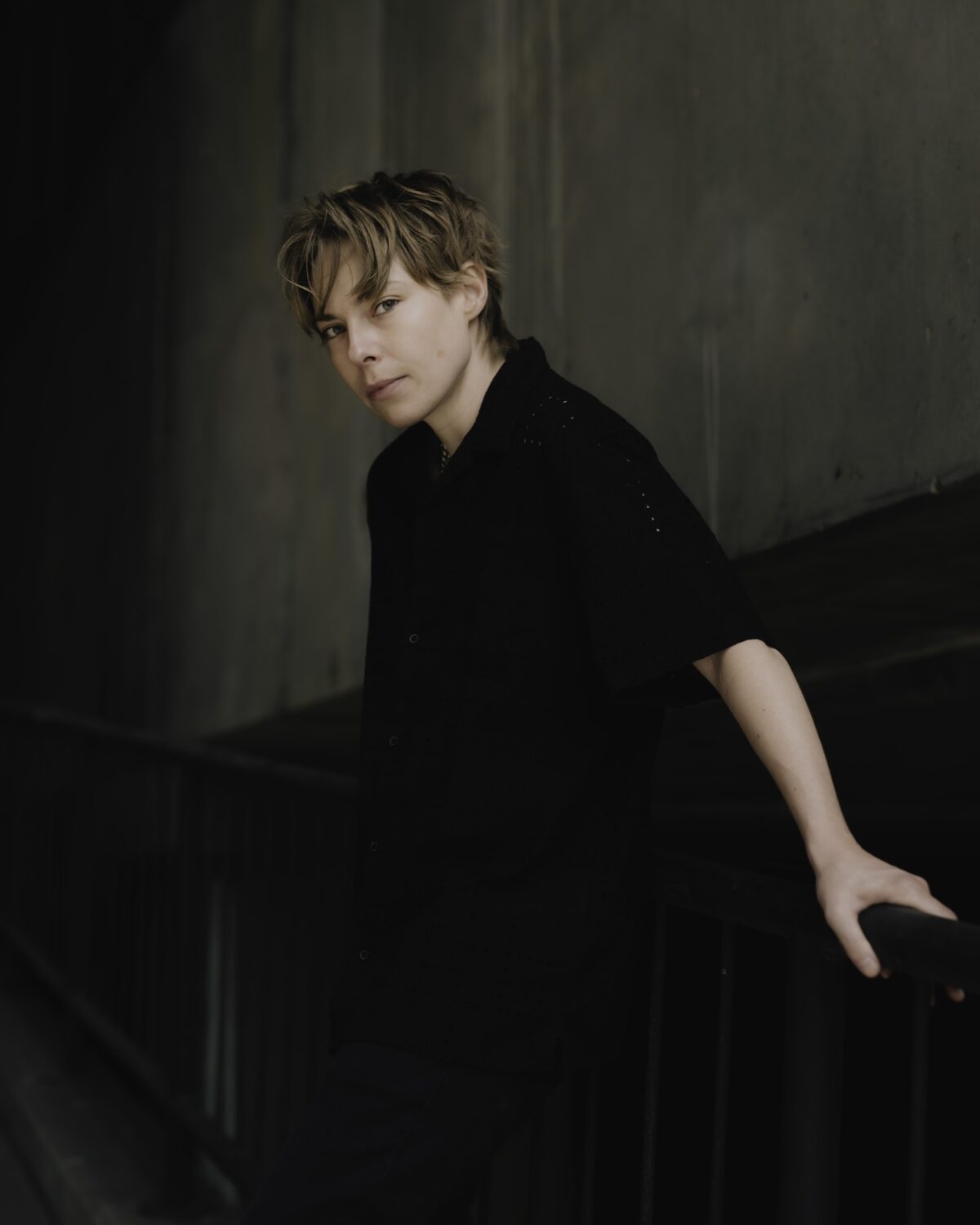
“Having the band is giving a lot of energy and hope”
You told me you always wanted to be in a band. Last year it became real when EAERES, your experimental doom band with Karolina Preuschl, Leon Leder und Ursula Winterauer, kicked off. How is that going?
It’s amazing. It’s the cutest band ever. I think we are all very happy that we have each other. Ursula (Winterauer) casted us for the piece The Sound of Musick [sic!] of Peter Kutin and Florian Kindlinger in Odeon, and we were really lucky to be immediately invited to play at donaufestival this year. So we had a goal where we would know we had to work for this. And so we started in January to meet regularly in the rehearsal room, composed three more numbers and worked on the older ones. Soon we will do a small release, on tape probably.
To me, having the band is giving a lot of energy and hope. You trust each other. Also it’s much easier to filter out artistic problems compared to when you’re working alone all the time, sitting in the studio for hours going through this process of building something and then destroying it again. I also do like creating by myself a lot, but it can be painful as well.
Do you have a hard time making decisions in your solo work?
Sometimes, yes. I’d start with a sound, build it up while thinking it’s good, and the next day I’d hate it. And sometimes it takes months until I really feel like, okay, now it’s endurable. Now I can let it be that way without thinking I could do better. I’m kind of a perfectionist as well. For example Equilibrium’s Fall, this one was really driving me crazy. I was thinking of not putting it on the album at all because I was so insecure with it and the process was hell. It was deleting a lot, starting new, not even knowing anymore what it’s supposed to be at all. Thankfully it was Leon who was saying, it’s a cool track, just accept it. Now I can live with it.
Your fine arts diploma in 2021 was a film. Have you done any visual works since then?
After my diploma I stopped doing the images, because I struggled with them a lot. They were way too concrete. Then I ended up doing sounds, and felt much more comfortable. I felt much more like I have a feeling for it. I know if it’s good or bad. Of course, you have insecurities always, but it was not as hard as it was with video. I felt like every image I chose was already so occupied by certain meanings, certain words, certain realities. Images to me felt very aggressive somehow, wanting so much already. Whereas working with sound was more playful. It would maybe open up something or invite listeners to their own imagination, a scene or a narrative, but they would have to invent it themselves.
Thinking about preoccupations brings me to a pop cultural association: Is there any relation between you and 80’s science fiction
Actually yes, with my mom I watched all the science fiction stuff. She was a huge fan, so we would watch all the Star Treks and Star Wars and Earth 2. Nobody seems to know this one by the way. It was canceled after one season. A story about humans colonizing another planet after destroying earth. And of course, later on I watched Blade Runner and so on. But I never thought of this being perceptible in my music. But yeah, indirectly it might have been an influence.
The first release came on tape, the new one is gonna be on vinyl. Do you have any personal relationship to these mediums as sound carriers?
I like them as objects and their specific sounds, the same way I do like machines. I always loved this low-key idea of the tape. When I was younger I’d record them and make mixes for my friends. Later on, I liked to have vinyls as well. I’m not a super vinyl freak, but when I enjoy a concert, I also like to buy the record. It’s an art object of friends or colleagues that touches me and I can touch it back. It’s also an incredibly beautiful feeling having the album artwork of Mara and Wynona being brought into physical space now. In association to the tracks they worked a lot with layering, fragments and different kinds of languages, combining this grainy analog landscape situation with very clear graphical elements and typo, and there’s that playful calligraphy on the back. So it would just be sad to not have it printed. This soon being able to hold it, thinking of this whole process where some special people put so much work into, feels amazing. Of course I don’t have anything against digital releases either, not at all. But your own vinyl, that is something you always dream of.
Thank you for sharing these compelling thoughts and taking the time, and all the best for your release!
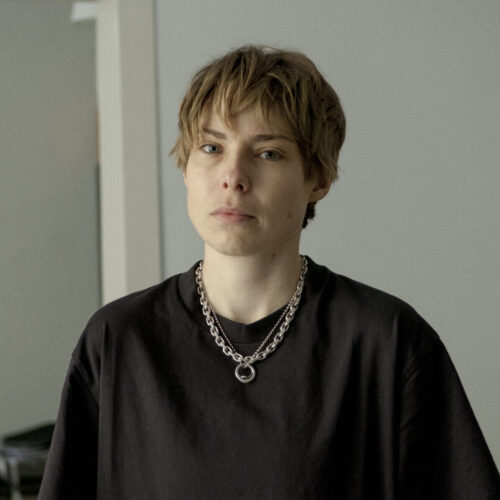
Rent